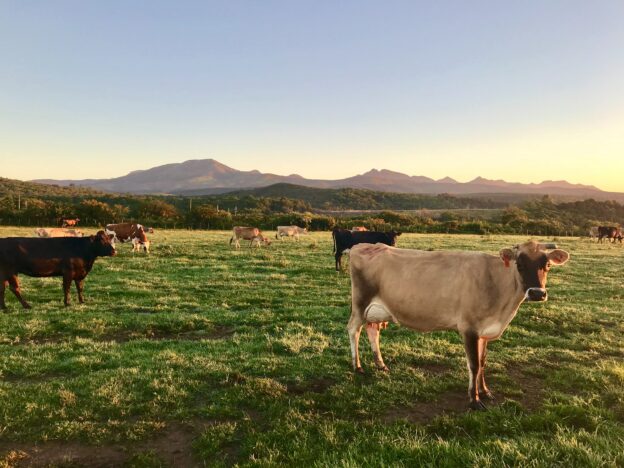A new Food & Agriculture Working Group to address sector-specific challenges for Scope 3 accounting
admin
The Food and Agriculture sector is crucial for global nutrition but also a major contributor (30% in 2018) to greenhouse gas emissions. To meet the 1.5°C target, urgent emissions reductions are needed, yet the top 7 global food companies saw a 7% increase in their emissions from 2020 to 2022.
This isn't solely due to corporate inaction. Value chains make up most of a company’s emission and there is still a lack of clear guidance for reporting on Scope 3 (value chain) emission reductions and removals. One central question, and major gridlock when it comes to Scope 3 is “how to take action when traceability and access to data remains limited?” The Value Change Initiative (VCI) is addressing these issues by organizing sector-specific Working Groups. These groups test the Value Chain Interventions Guidance, which focuses on quantifying, accounting and reporting Interventions in Scope 3 inventories.
The VCI has previously organised three Food & Agriculture Working Groups to extend the existing Guidance to sector-specific needs for Scope 3 accounting. The Working Groups have contributed to core concepts such as “Supply Shed”, provided feedback for VCI Guidance version v. 1.1 (2021), and published an addendum Technical Guidance (2023) that is now the reference for this sector.
Building on this, VCI is launching its fourth Food & Agriculture Working Group in fall 2023. This group aims to continue removing barriers to accounting, reporting and claiming Scope 3 decarbonisation interventions, and accelerate the sector’s transition to Net Zero. It will focus on addressing persistent challenges, with a focus on Food and Agricultural concepts relevant to Category 1, such as land use change.
The ever-evolving Food and Agriculture landscape
New regulations, such as the EU Corporate Sustainability Reporting Directive (CSRD) and Climate-Related Disclosures by the Securities and Exchange Commission in the US, are making it mandatory for companies to track and disclose their Scope 3 emissions. In the Food and Agriculture space, the Science-Based Targets initiative (SBTi) has developed Food, Land and Agriculture Guidance on setting science-based emission reduction targets in land-intensive sectors, and further guidance on how to engage suppliers in setting those targets. On its part, the GHG Protocol is working on a Land Sector Removals Guidance, which focuses on accounting and reporting GHG emissions and removals from land management, land use change and related topics, a process where VCI and many of its members are actively engaged in the dialogue. The guidance is expected to be published in 2024 and aims to create more consistency and transparency for the way companies quantify and report GHG emissions and removals from land use related sectors. Running the VCI Working Group in parallel to this process allows participants to anticipate upcoming guidance, align outputs to international best practice, and feed back to guidance creation with lessons learned from implementation.
Catalysing the transition towards Net Zero value chains by removing the barriers for Scope 3 interventions
With robust foundations from the previous Working Groups and published Guidance, Working Group IV members will contribute to publishing new Addendum to the Guidance focusing on additional elements which have not yet been incorporated. These will be co-developed with participants and could include key topics such as land-use change, crop rotation and GHG Protocol Category 11: Use of sold goods.
As a member of the Working Group, participants can leverage consensus-driven outcomes to:
- Improve their sustainability strategy: Working Group members learn from best practices to enable and create credible impact at scale and feed it back into their organisation’s sustainability strategy.
- Get more impact from value chain operations and interventions: Working group members review accounting, verification, reporting and claiming challenges in detail, and actively participate in creating the principles endorsed by the Working Group.
- Enable credibly claiming and co-sharing impact: Participating organisations will be able to identify and co-design solutions that can be credibly implemented and used to unlock co-investment and co-claiming between value chain partners.
- Influence standards and future policy: Working Group members will feed back to the ongoing work of standards and other relevant bodies by creating outputs with recommendations based on real-life cases and day-to-day challenges.
What will the Working Group cover?
The Food & Agriculture Working Group will co-develop learning questions and common challenges together with the participants to explore throughout the duration of the Working Group. The Working Group is structured in five thematic sessions (online and in-person), designed to lead participants from concept introduction and capacity building all the way to application, reporting and verification. Learning questions may include topics such as:
- Accounting: How to approach Agriculture, Forestry, and Other Land Use (AFOLU) -specific topics (e.g. crop rotation, land use change).
- Exploring the Supply Shed concept: What are the implications of an actionable Supply Shed for diverse agricultural sub-sectors and for different actors in the value chain (e.g., input producers, food processors)?
- Beyond Category 1: What are the concepts needed to enable claims in other categories in Scope 3, e.g. Sales Shed?
- Implementation: What are the mechanisms and best practices to co-invest and effectively implement interventions?
- Allocation and rights of claim: How can companies co-claim impact in Supply Shed interventions?
The Working Group offers organisations the opportunity to lead the conversation and develop new guidance for Scope 3 emissions in the sector, as well as being the first to implement new ideas in their operations.
Join us in Food & Agriculture Working Group IV to tackle Scope 3 emissions in your value chain – along with organisations such as ESMC, Regrow, Nutrien, Starbucks and Neutral.

